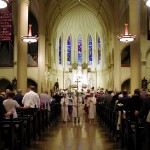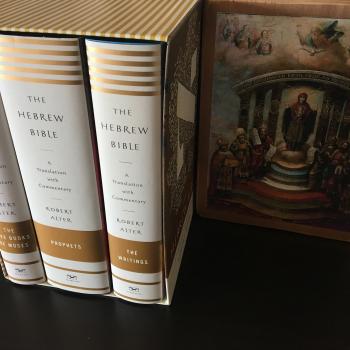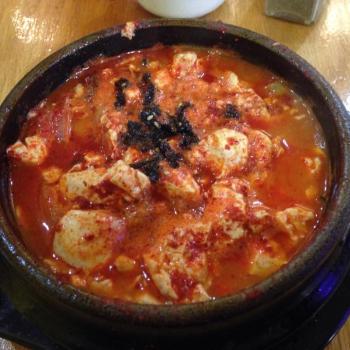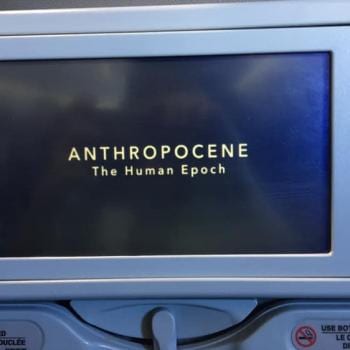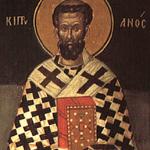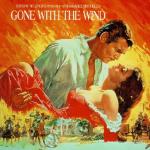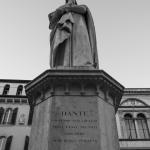Whenever I write about controversies, say, at Sovereign Grace Ministries or Mars Hill Church, I am always corrected by people who know what they are talking about. I’d #TPCIU the ‘Neo-Calvinists,’ and I’d be immediately informed that Colin Hansen’s Young, Restless, Reformed is about ‘New Calvinists.’ The difference? ‘Neo-Calvinism’ refers to the Dutch Calvinism of people like Abraham Kuyper all the way up to Richard Mouw, who have a view of Reformed politics that seeks to assert the sovereignty of God and common grace over all spheres of life. This is different, my colleagues tell me, from ‘New Calvinism,’ which is a popular grounding of Calvinism that takes its cues largely from Wayne Grudem’s Systematic Theology: a generally charismatic Calvinism whose members intend to assert their place in American evangelicalism with big words like credo-baptist and complementarianism.
Calvinism, in short, is not one thing. As with most things I say these days, of course, I realize I’m pretty late to the party.
But hear me out.
I just cleared my new work with the University of Washington’s research ethics board not too long ago, and I am about to start work on a postdoctoral project. I’m focusing on how younger-generation Asian American and Asian Canadian Christians engage and create public spheres, and as much as I’ve made clear on this blog that I have a growing interest in Catholics, the fact remains that many of the people I’m studying come from the Reformed traditions. Accordingly, I’d like to reflect briefly on the figure of John Calvin over my fieldwork — indeed, to some degree, my field — in an effort to solicit constructive comments from anyone who is willing to be a fellow traveler from across the Reformed theological spectra (e.g. PCUSA, RCA, PCA, OPC, CRC, CREC, Disciples of Christ, New Calvinist, etc.). In so doing, I’d like to make a few things clear. The first is that I am not a trained theologian; I am a geographer, and what I am trying to do is to map the grounded theologies that continue to constitute modern geographies. This means that at a practical level, I will absolutely indulge controversialists who have a dog in the fight to define what it means to be ‘Reformed,’ but because the only dog I have in this fight is to map how these partisan struggles produce geographies, I cannot be expected to actually take a side. However, it is precisely because of these controversies that the followers of Calvin seem to have a disproportionate amount of influence over Asian American and Asian Canadian Protestants from across the theological spectrum, and what I’m trying to figure out is why.
In some ways, my thinking was deeply stimulated by the panel that happened around James K.A. Smith’s How (Not) to Be Secular: Reading Charles Taylor at University Presbyterian Church last Friday. I blogged last Saturday about how that stimulated more of my thinking about ecumenism. Today, I want to open up another aspect that the talk implicitly touched on: the Reformed heritage.
One could say that the Jamie Smith talk was a coming together of Reformed groups that normally don’t talk to one another. Moderated by Reformed pastors Ashley Van Dragt and Matthew Kaemingk, the questions and framework directed at the panel had a sort of classically Calvinist tinge to them, emphasizing how the church is to operate to bring the sovereign reign of God to an American region populated by ‘spiritual but not religious’ (SBNR) self-identifiers. Yet the panel was around Jamie Smith, a Reformed theologian notorious for bringing Catholic and Pentecostal infused flavours into his Reformed theology because those traditions have led him to re-interpret secular landscapes as aesthetic liturgies, quite an uncommon theme in Reformed theology until the recent liturgical renewal around, say, the Revised Common Lectionary. Yet Smith could hardly be classified as liberal — that distinction falls to Jim Wellman, an ordained Presbyterian Church (USA) minister who spoke about how the development of the SBNRs might well be an act of the sovereignty of God and of how this sovereignty of God does not translate into the formation of Christendom; in his words, ‘Christendom is dead, and thank God that Christendom is dead!’ All of this was housed at University Presbyterian Church, a card-carrying member of the PCUSA that has also joined the Fellowship of Presbyterians in protesting developments in the PCUSA it claims to be ‘liberalizing,’ by which is generally meant a focus on social justice and politics at the expense of personal conversion and discipleship. As much as the panel was supposed to be about the SBNRs, I found myself wondering whether the whole thing was a careful dance around the contests of Reformed theology in America right now and what it actually means to do the John Calvin thing in the Pacific Northwest right now.
In turn, my Facebook and Twitter news feeds were consumed not too long ago by another ecumenical Reformed conversation, The Future of Protestantism, hosted by Biola University’s Torrey Honors Institute. Convened around Presbyterian Church in America’s (PCA) Peter Leithart and his seriously contested article in First Things ‘The End of Protestantism,’ this event featured Biola’s Fred Sanders and Westminster Theological Seminary’s Carl Trueman (an Orthodox Presbyterian Church [OPC]) minister as critical interlocutors in a debate moderated by The Calvinist International’s Peter Escalante. Perhaps the most memorable accounts of the entire event may have been the repeated references to Escalante’s glorious moustache, one that I had the deep pleasure of seeing first prior to this crowd, as I had had a chance to have an in-person conversation with Escalante in San Francisco in April – long story there, but suffice it to say that on the busy street corner of Powell and Geary at Union Square, the moustache certainly aided our mutual recognition as we met for the first time.
Where Smith’s talk at University Presbyterian Church almost unintentionally brought together a kaleidoscope of Reformed thinkers and practitioners into one space, The Future of Protestantism seemed mostly drawn from the hard right of the culture wars. Implicitly taking J. Gresham Machen’s Christianity and Liberalism as its point of inclusion and exclusion, Leithart, Sanders, and Trueman debated whether Protestants should be content to distinguish themselves as members of separate churches from Roman Catholicism or whether they should follow Leithart’s lead in calling themselves ‘Reformational Catholic‘ in an effort to declare solidarity with Catholic and Orthodox Christians. Liberal exclusions aside, it was interesting to see where the fault lines actually lay. As Leithart later reflected, it seemed that Sanders and Trueman had different definitions of Protestantism as a set of theological principles, whereas he was talking about a political and sociological formulation. Even these philosophical differences make a real difference when it comes to Reformed geographies, it seems: it can, for example, affect whether one thinks it’s OK to call Catholics and Orthodox fellow brothers and sisters or whether it’s not.
These Reformed divisions are fairly important for understanding Asia-Pacific and Asian American Protestantisms. Lian Xi has suggested and Samuel Ling has polemicized on how Chinese Christianities are indebted to Reformed theologies; I also know that my colleague Alexander Chow has some stuff in the pipeline about this too. One thinks also of the frequent descriptions of Korean and Taiwanese Presbyterians, often as theological and political conservatives both in the Asia-Pacific and when they migrate to the Americas. Tim Tseng has reported on how New Calvinists have permeated Asian American churches in an effort to assert their own Protestantism. Yet the record on Reformed conservatism in Asia-Pacific and Asian American contexts is mixed. I distinctly remember one American Academy of Religion paper session where a gay activist-academic slammed the conservatism of Korean Presbyterians in propagating homophobic discourses. Right after she sat down, Union Theological Seminary’s Su Yon Pak, an openly lesbian pastoral theologian, came to the podium declaring, ‘And now you will hear from a Korean Presbyterian!’
One thinks also of how the current academic work on Asian American Protestants is situated. Most of what we have falls within the purview of congregational studies, ethnographies of immigrant congregations in which researchers report on internal congregational dynamics. My master’s research fell into this category; my PhD was a departure from this. Along the way, people I read in this vein have become friends, such as Russell Jeung, Carolyn Chen, and Fenggang Yang. In these studies, the questions that are usually asked are how Asian American congregational dynamics lead to the development of an ethnic identity and whether these new ethnic formations aid in American assimilation. What’s seldom noted, though, is that these people tend to take their cues from the work of R. Stephen Warner, whose seminal congregational study, New Wineskins in Old Wineskins: Evangelicals and Liberals in a Small-Town Church, was a study of shifts in a Calvinist church, Mendocino Presbyterian Church. Not to be outdone, my postdoctoral supervisor, Jim Wellman, did his PhD on a similar theme in The Gold Coast Church and the Ghetto, a study of Fourth Presbyterian Church in Chicago, a liberal mainline Calvinist church that negotiated its own theological praxis with the surrouding culture. Such origins lead to a question: To what extent are the assumptions that permeate Asian American Protestant studies, especially in congregational studies, Calvinist assumptions about congregational polities, ethnic identitites, American culture, and migrant religions?
In turn, I could also ask about how different Calvinisms are contested on the ground. One of my growing interests is in the politics within the Presbyterian Church (U.S.A.) — hereafter, PCUSA. This is in part due to some research that I did in San Francisco among mainline churches in Chinatown. This research led both to interaction with colleagues in both academic and ecclesial contexts, as well as reading people I hadn’t met but who were influential in the public sphere. I noted that many of these people were part of the PCUSA, such as Frank Yamada, Grace Kao, Norman Fong, Harry Chuck, Theresa Cho, and Bruce Reyes-Chow, but I just filed that away as a piece of information that I couldn’t deal with during the PhD. Now it — as well as the political debates within the PCUSA — is coming back to haunt my postdoc.
One might say that the PCUSA infighting is due mostly to sexuality issues. But as I’ve learned through digging through the PCUSA website, I think it’s safe to say that that’s only the tip of the iceberg. One case that interests me in particular is the departure of Menlo Park Presbyterian Church from the San Francisco Presbytery. While the church’s official press statement emphasizes the doctrinal differences that the congregation had with the presbytery, the insinuations in much of the commentary around the case had it that the real underlying issue was the clash between conservative and liberal theologies around homosexuality and same-sex marriage. Yet going through the case, I’m not convinced that it should be reduced to sexuality issues. Given the entire range of Reformed issues, it seemed like the real issue centered on defining what it meant to practice Calvinist Christianity. One intriguing point of contention surrounded the Boycott, Divestment, and Sanctions (BDS) measure that the presbytery took against the State of Israel for ‘apartheid’ actions in the Israel-Palestine geographical conundrum: Menlo saw that as a distraction from the work of evangelism. What’s telling is that the BDS was also taken by the American Studies Association and the Association of Asian American Studies, which makes me wonder whether an Asian American social justice approach interprets the Calvinist tradition to be about temporal justice. After all, Michael Walzer’s 1960 revision of his PhD, The Revolution of the Saints, argues that the English Puritans were the first radicals. One wonders, then, whether this has anything to do with the more recent PCUSA contentions around the Belhar Confession, a 1986 South African confession of faith that would recenter PCUSA faith practice around social justice as an interpretation of Calvinism. While the motion around Belhar failed in the last General Assembly, I wonder if there is — and the if here is big and speculative — any convergence around Asian American radical politics and the internal struggles of the PCUSA. (On the same token, one wonders whether there is any convergence around Asian American conservatisms and the formation of alternate Presbyterian structures, like the Fellowship of Presbyterians and the PCA.)
I suppose what I’m saying is that Calvin’s legacy has created multiple, contested geographies, and for the purposes of the postdoc, I’m curious as to how these contestations include Asian American and Asia-Pacific actors. Perhaps one way of digging into this is for me to construct a background reading list in Reformed theology and history, and to get serious about that, at the top of my list is to re-read Calvin’s Institutes of the Christian Religion as a political geography text. To do this, though, I will need help. I will need assistance from all quarters of the Reformed spectrum for what texts are in play and what theologies are seen as useful. I want to do this well.
So educate me. Even as I am also digging into Catholic theological imaginations as well as other evangelical orientations, I am very interested in doing this Calvinist thing well.
A caveat, though, as this happens: let me reiterate that I am a geographer. As it is, I don’t really have a dog in the fight to define what real and true Calvinism is. This means that I’m willing to talk to anyone from across the Calvinist spectrum. It means that I will listen to you. But even as I am listening to you, I may also be listening to people you might call your ‘enemy.’ It’s part of what it means to map grounded theologies.


